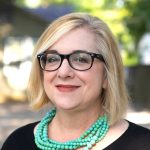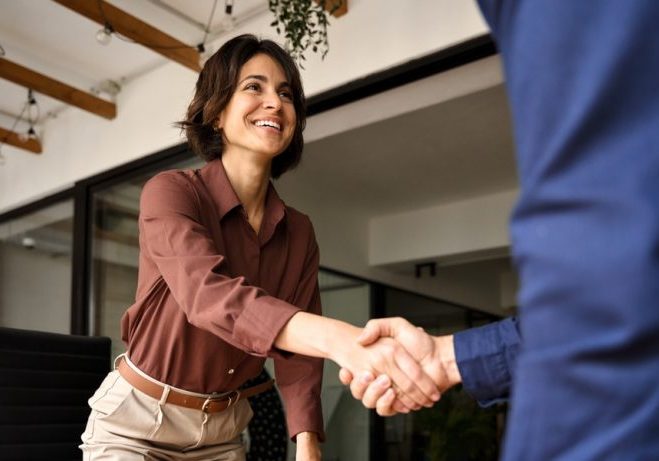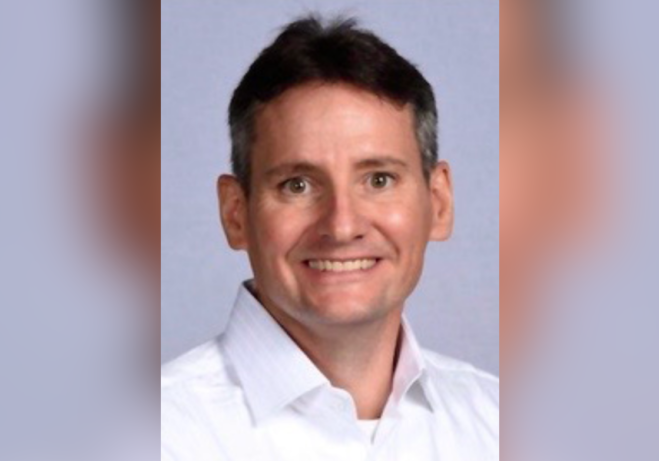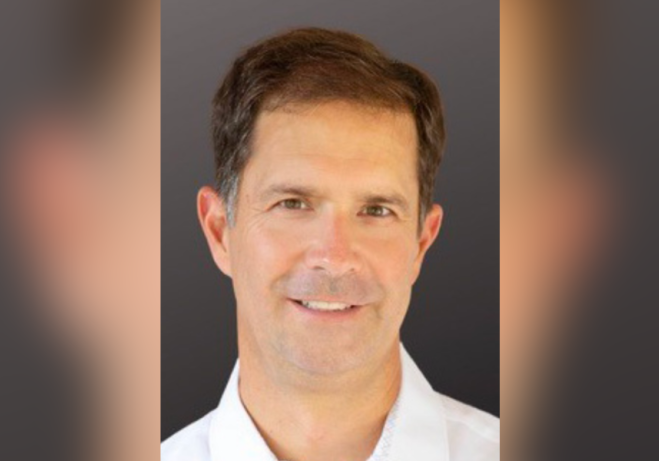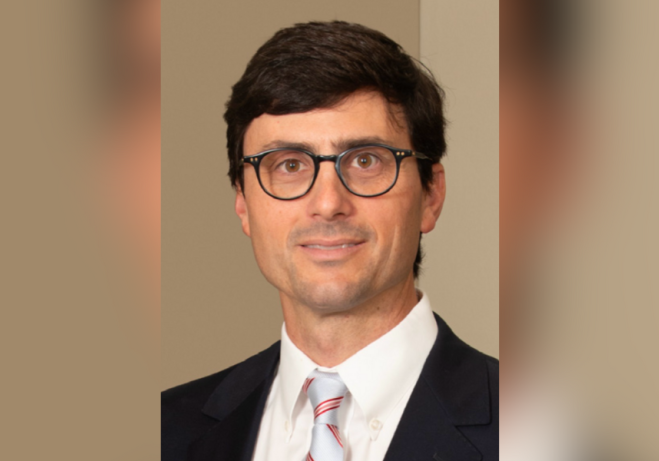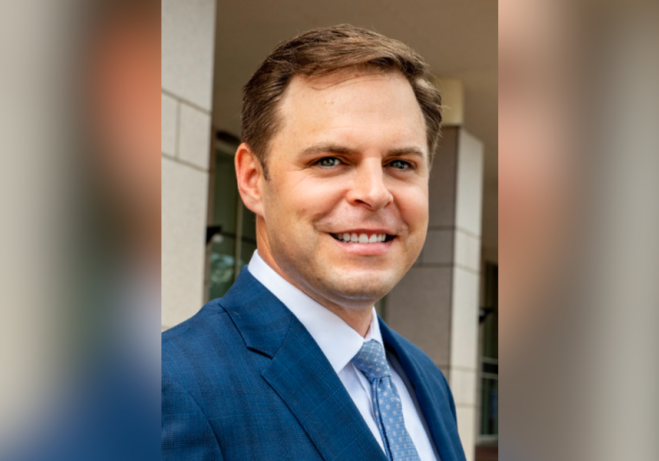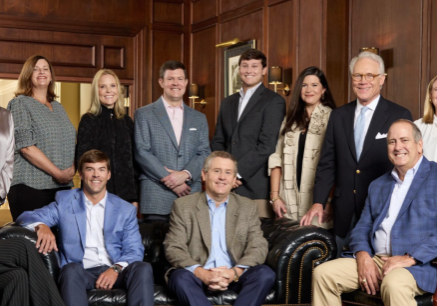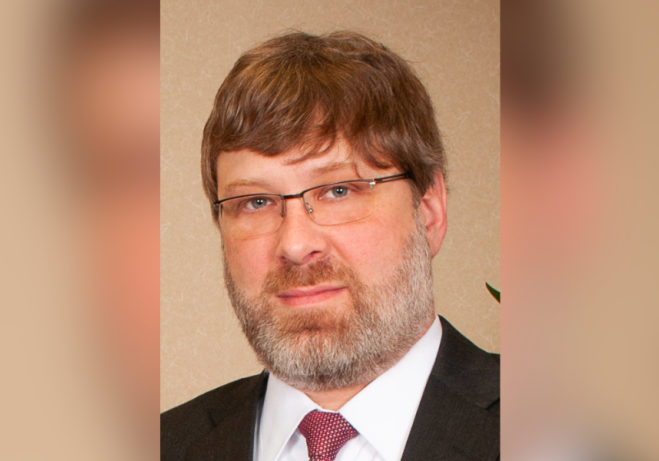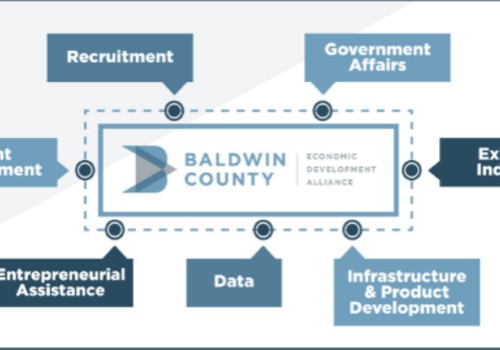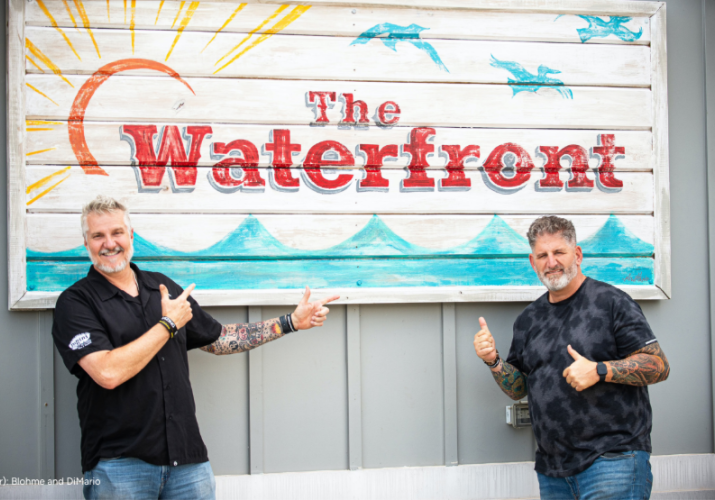The Ripple Effect
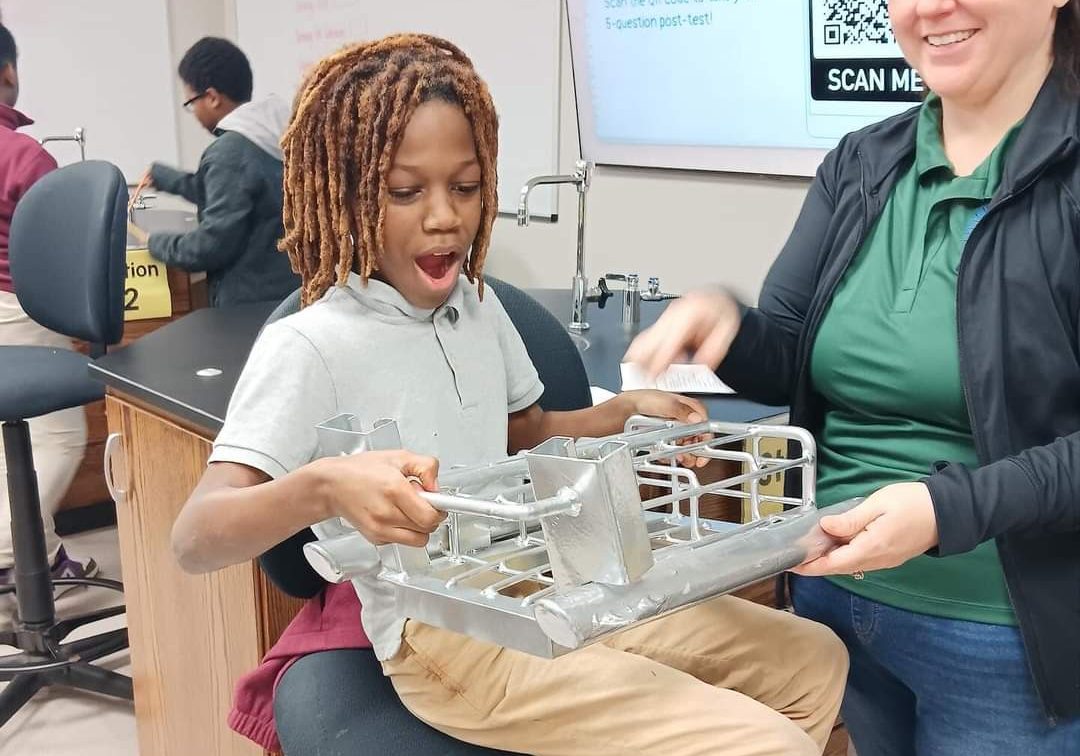
Evelyn DeAngelo (ED), owner of Longleaf Consulting — a company that provides solutions to clients committed to fostering sustainable communities — speaks to your author (KW) about the rewards and challenges of what she does.
by Kaija Wilkinson
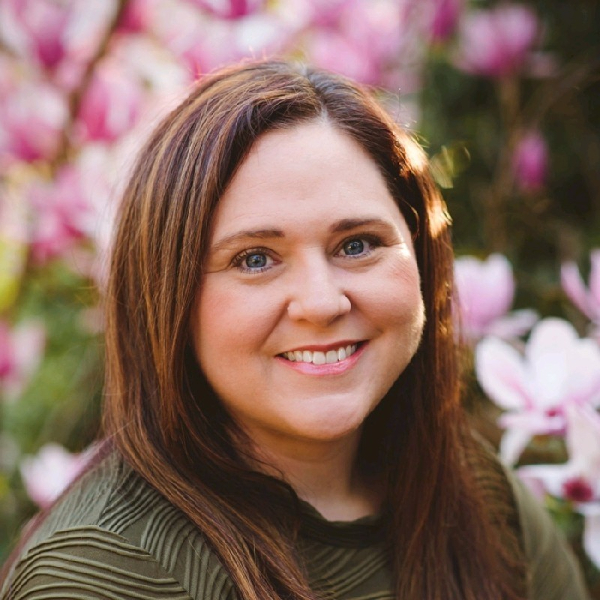
A rural Louisiana native who grew up active in Girl Scouts and 4-H, Evelyn DeAngelo, owner of Mobile-based Longleaf Consulting, LLC, has been passionate about preserving the Earth from an early age. Both youth organizations sparked her interest in environmental sciences, leadership, community engagement and youth development.
After graduating from Louisiana State University with a degree in vocational education, she moved to Alabama in 2004, where she served as the Auburn University Regional Extension agent for the Wiregrass Region. She later earned her Master of Science degree in child, youth and family studies from the University of Nebraska-Lincoln. She worked with the Mississippi State University Extension Service as a 4-H Youth Development agent in Jackson County, Mississippi, for eight years.
Upon returning to work in 2020 after taking several years off to care for her family, her first project was helping Keep Mobile Beautiful re-launch the Mobile County Commission’s county-wide, Gulf of Mexico Energy Security Act (GOMESA) grant-funded initiative, “Love Your Community.” This project supplies litter cleanup materials to individuals and small groups who register their teams. Participants can report their cleanup hours to qualify for sub-grants ranging from $500 to $1,500, which can be used for beautification or sustainability projects within Mobile County. Under DeAngelo’s leadership, the program has grown to more than 150 teams across Mobile County. More than 1,000 volunteers of all ages have been involved.
As owner of Longleaf Consulting, she recently served the City of Mobile’s “Litter Free Mobile” campaign through a partnership with the Osprey Initiative. Together, they launched the Litter Literacy curriculum to all public and private school sixth grade students in the City of Mobile during the 2023-2024 school year. Seeing this project from the development and writing stage to in-class presentations, and now, reviewing students’ post-test results, has been a “dream come true” for DeAngelo, who says, “I am so excited about the future of this program!”
DeAngelo is a member of the Mobile United Natural Resources Task Force and assists in leading the citywide Martin Luther King Jr. Day of Service cleanup and monthly Green Drinks informational networking events. A member of the Leadership Mobile Class of 2022, she served on the city’s Economic Development team. She is married with two school-age children.
KW: When did you launch Longleaf Consulting, and where is it physically based?
ED: After several years working as an independent contractor for several clients, I decided to take a leap and form my own consulting business. That was in June 2023, so I just celebrated my first year of owning a small business. I have a home-based office in the Tanner Williams community, and my current clients come from the Alabama/Mississippi Gulf Coast. I recently hired a part-time assistant project coordinator as my first step to embracing the growth I foresee for my business.
KW: Tell me about the Osprey and Litter Literacy initiatives.
ED: Osprey Initiative, LLC, is a Mobile-based business owned by Don Bates. Locally, they have been instrumental in finding solutions to remove marine debris and address stormwater issues in the City of Mobile. Don invented a floating, litter-capturing device called the “Litter Gitter.” Their business is now serving communities across the U.S., Mexico and Canada with litter solutions, tactical cleanups and recycling facilitation management. “Litter Literacy” is a term they use as a part of Osprey Initiative’s mission to provide educational resources about litter, its causes and its effects to communities. The mission includes helping students to become leaders in their community now for a sustainable future. I was excited for Longleaf Consulting to partner with them and help make their vision for a hands-on classroom curriculum for students become a reality. In 2023, Osprey committed to a request for proposal (RFP) from the City of Mobile to offer a litter-prevention education program for local public and private middle school students. We knew the first step was education. This gave us the opportunity to launch the Litter Literacy curriculum and pilot the program in local schools.
KW: Tell me about the Dog River Clearwater Revival (DRCR).
ED: I was excited to assist DRCR in developing a new educational lesson plan for their volunteers when visiting third-grade classrooms in our community. In addition to creating lessons and activities, I enjoyed conducting train-the-trainer sessions to help their volunteers learn how to present to students and provide follow-up support with materials, school contacts and more. Now, they’re empowered to reach a new generation of potential members and educate students about the Dog River watershed. The best moment for me was when a DRCR volunteer visited my daughter’s third-grade class this spring, and she came home excited to share all the info with me and had the student take-home page that I produced. It felt full circle and reminded me that what I’m doing is impactful.
KW: Are Keep Mobile Beautiful (KMB) and Love Your Community related?
ED: KMB is a local non-profit organization that is subcontracted to serve the Mobile County Commission by providing a dedicated Love Your Community project coordinator (me), offering an education and outreach program, support for community litter-collection events and the time-banking of Love Your Community volunteer hours engaged in these activities. It has been a great partnership for both parties. KMB has had a longstanding reputation in the Mobile community for having big impacts on recycling, litter abatement and beautification projects. They have annual grant opportunities with local schools for campus projects and educational gardens. Volunteers who serve on their board help host recycling, shredding and community cleanup events throughout the year. One of the most exciting things that has developed from this partnership is the annual Love Your Community Earth Day Celebration. We just hosted our third year at the Mobile Japanese Gardens. It has grown into a premier local festival and event.
KW: What are three things a “typical” small to medium-sized business can do to make a positive difference?
ED: Businesses of all sizes can take small, actionable steps toward making a difference in the environment. I think the easiest thing for them to do would be to consider the three Cs: consumption, conservation and community. First and foremost, they can do this by being aware of their consumption of resources and materials. The basic “the more you buy, the more you dump” principle applies to businesses, too. Everything has to go somewhere. The next level would be sourcing products and materials from sustainable suppliers. Many customers expect businesses to have a commitment to sustainability, especially in the supply chain. Implementing office recycling is another way to address consumption. But it isn’t always easy in every community. Secondly, businesses can participate in the conservation of natural resources and implement simple energy-efficient practices in operations or reduce water usage on site. These not only make an environmental impact, but can save money. Finally, engaging the community is an important component. I love creating a sustainability plan for a business that can include tailoring programs to involve employees in making community impacts through volunteer opportunities and supporting community resources like schools and nonprofits with sustainability missions. Some companies plan community cleanup days or give employees one day off each year to volunteer in their community.
Ultimately, businesses need a sustainability plan in anticipation of responding to RFPs that have environmentally conscious requirements. To qualify for government funding, many businesses must have a sustainability plan. This requirement ensures that public funds are used to support projects that minimize environmental impact, promote resource efficiency and align with longterm environmental goals.
KW: The same question, but for an individual – “don’t litter” comes to mind.
ED: Not littering is the easiest starting place for everyone! Again, it is all about decision-making and personal responsibility. The next step is picking it up when you do see litter — not just assuming that someone else will do it or it’s someone else’s job. Litter doesn’t stay put. What is in the parking lot when you walk into work could easily be moved by rain to a storm drain or flowing through the watershed by the end of the day.
KW: Speaking of not littering, has Longleaf (and the community at large) seen success from educational programs such as for grade-school students? What’s key to driving home to kids that it’s not OK to litter, especially if they see parents do it?
ED: Yes. I believe we have seen great impacts on the young people in our community who participate in litter-prevention education programs. Changing their attitudes toward litter and helping them take a role of responsibility for their community is what it’s all about. It is definitely a shift away from what has become the cultural norm here to accept litter as “just part of life.” We need them to learn that it is unacceptable and irresponsible behavior. You’re right though: There is a challenge when they see adults do it. Many adults don’t realize the connection litter has to a community’s pride, as well as the environmental impacts.
KW: Could you please provide one example each of client support programs in the nonprofit, government/nonprofit, government/for-profit and for-profit sectors?
ED: It’s crucial that we recognize that we have a shared responsibility for sustainability to help businesses, nonprofit organizations and government agencies have greater impacts through strategic partnerships.
Nonprofit
Development of customized educational materials and project management funded by member-driven funding or crowdfunding.
Example: DRCR’s education outreach to local students through in class presentations and activities, presented by volunteers.
Nonprofit and Government Collaboration
Typically issued as grants with specific goals tied directly to other government projects. Nonprofits are often cost-effective ways to execute projects.
Example: KMB’s Love Your Community program, developed and funded by the Mobile County Commission using GOMESA funds. Also, the Mobile County Recycling center operated by Goodwill Gulf Coast.
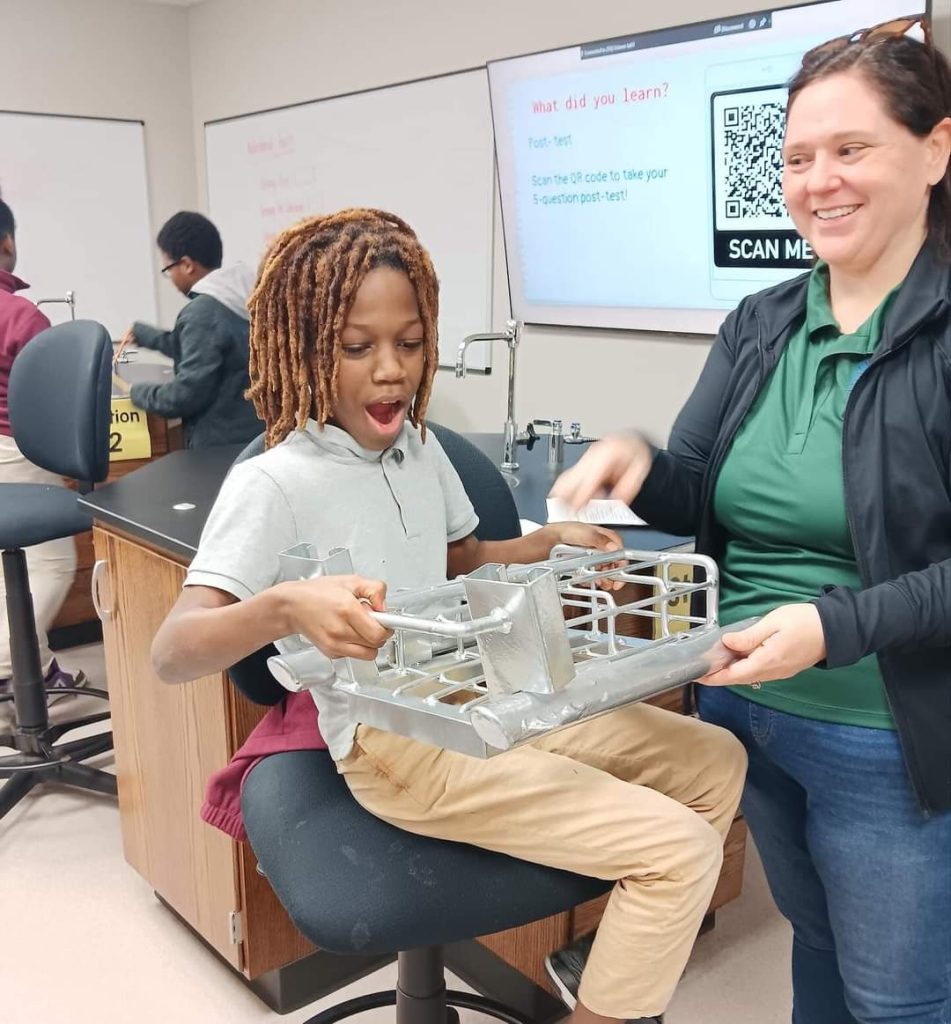
Government and For-Profit Collaboration
Subcontracts for projects that, due to logistical reasons or funding, cannot easily be completed by nonprofit entities or that branch of government.
Example: The City of Mobile’s “Litter Free Mobile” campaign to educate students through the Osprey Initiative’s Litter Literacy program for middle school students.
For Profit
Creative projects and solutions for companies that can be monetized for profit. This can include tangible merchandise or educational materials for sale.
Example: Novelis, a company with a new facility in our region, describes itself as “the largest producer of aluminum beverage can sheet metal and the world’s largest recycler of used beverage cans.” A fair portion of these recycled cans come from consumers donating them back to the industry. Without some level of community participation, it would be an even greater challenge to recover those materials.
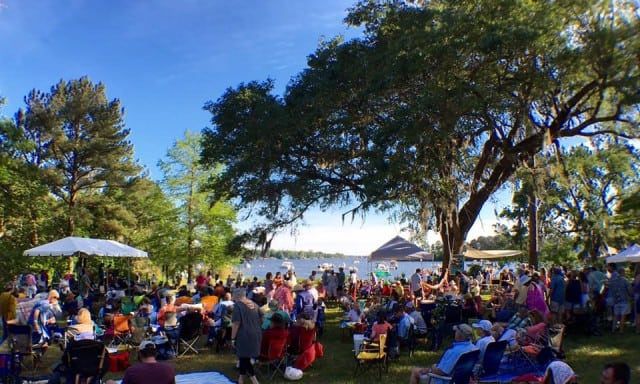
KW: Talk to me about the engagement and empowerment components of environmental responsibility. Is there a relatively recent example of a collaboration, particularly one that involves big business or industry, that was/is successful in effecting change?
ED: Recently, Airbus employees and members of their Global Graduates program participated in Love Your Community. They formed teams, logged hundreds of hours collecting litter from across the community and volunteered in a local educational garden. When rewarded with their Love Your Community project funds, the Airbus team used the money to fund improvements to an outdoor classroom at Taylor Park. There, another nonprofit, Mobile Urban Growers, offers free, hands-on gardening projects for children in the community weekly. Those ripples will continue to make an impact in our community for years to come. Those are the wheels I like to help turn and the connections I love to help make.
Read More
Subscribe to our weekly newsletter
Sign up here for free to get Bay Business News email newsletter every Friday.
By subscribing, you agree to our User Agreement and Privacy Policy & Cookie Statement.
